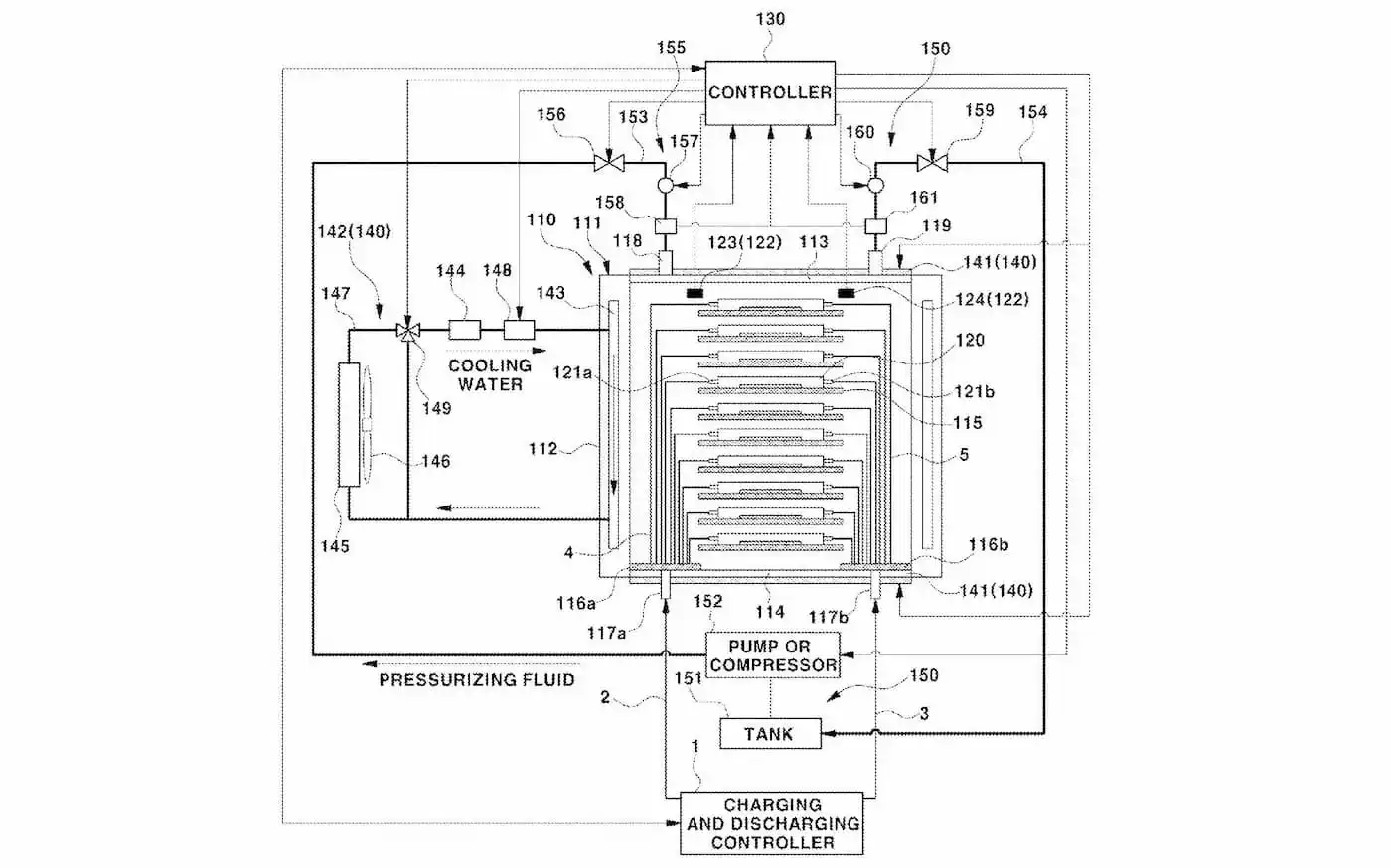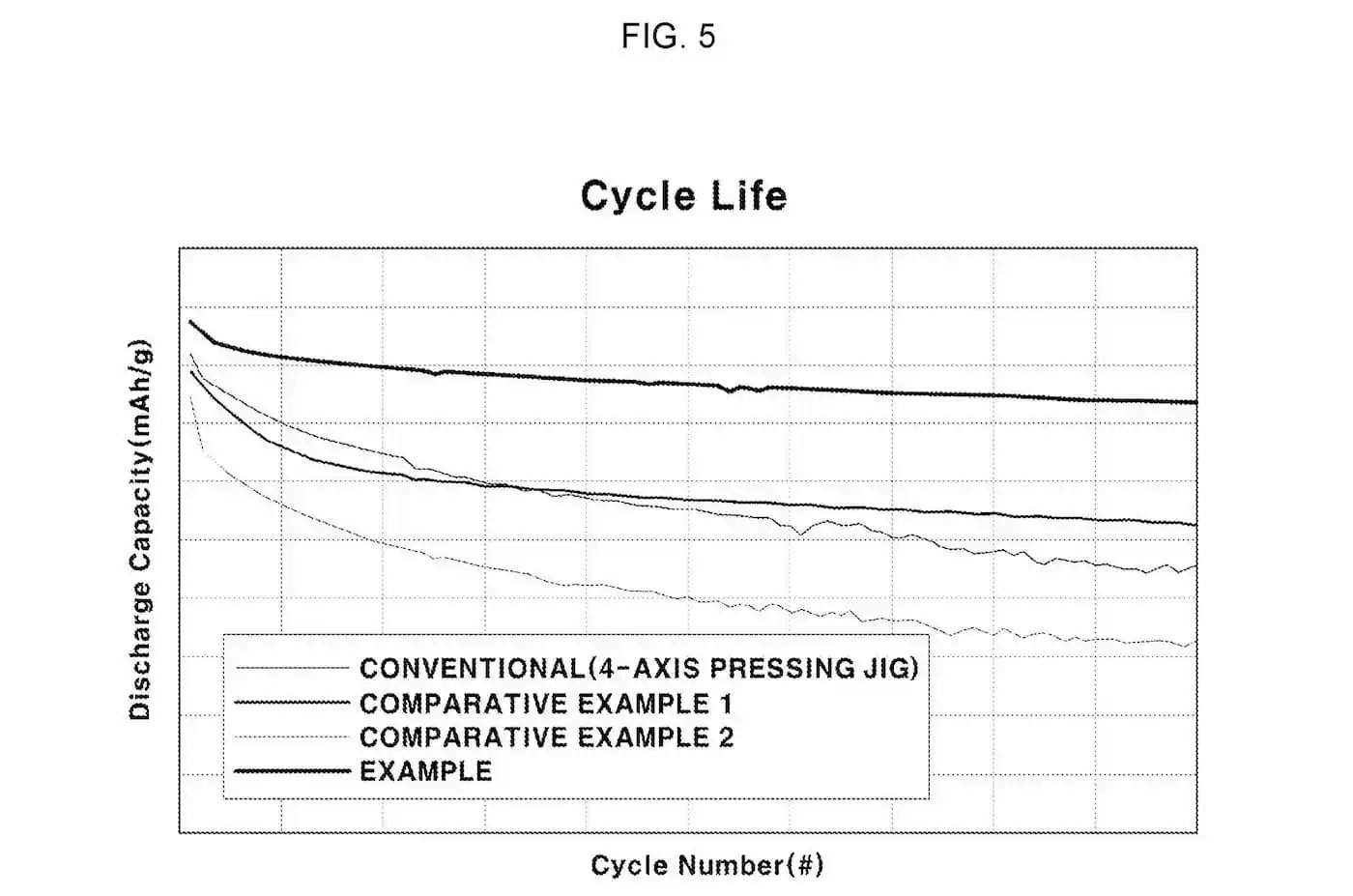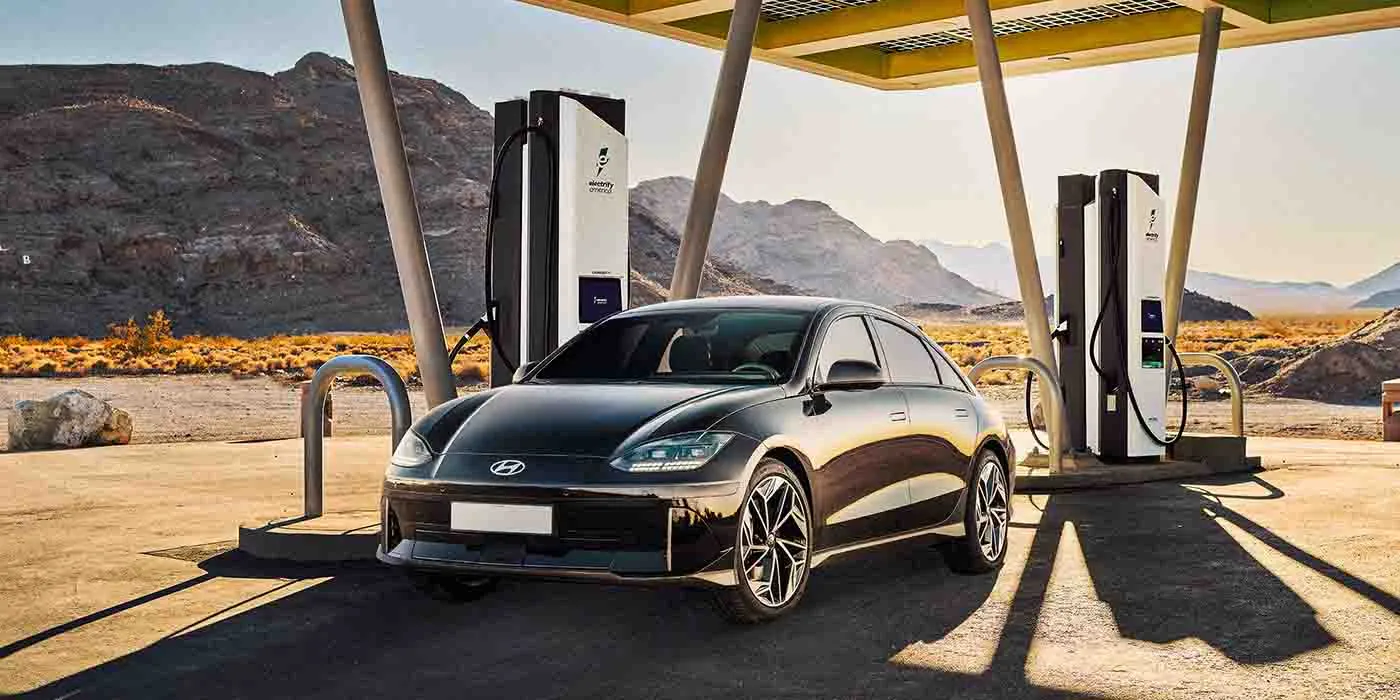South Korean automaker Hyundai has set its sights on enhancing electric vehicle (EV) performance by filing a patent for a pressurized all-solid-state EV battery system in the United States. The move reflects Hyundai’s commitment to staying ahead in the growing EV market, with a focus on improving battery stability and energy density for more efficient and enduring EVs.
The patent, titled “all-solid-state battery system provided with pressurizing device,” was officially published on December 28, 2023. Hyundai’s innovation involves an all-solid-state battery system that maintains constant pressure in each cell, regardless of charging and discharging rates.
See also: Nextcell to Develop Semi-Solid State Batteries with Gel Inside
Traditional lithium-ion batteries utilize a liquid electrolyte to separate the cathode and anode, whereas solid-state batteries employ a solid electrolyte. This distinction ensures stability and sustained performance even if the electrolyte is compromised.
Solid-state batteries are gaining attention as a potential alternative to conventional lithium-ion batteries, promising benefits such as reduced weight, enhanced safety, faster charging capabilities, and improved overall performance. However, challenges related to material cost and sourcing have hindered their widespread adoption.

See also: Samsung SDI Establishes Dedicated Team for Solid-State Battery Commercialization
Hyundai’s novel all-solid-state battery system aims to address these limitations by implementing a constant pressure approach during charging and discharging cycles. The patent details a configuration where battery cells are housed within a closed, pressurized chamber. Fluid, under isostatic pressure, is used to pressurize the cells, with a dedicated pressurizing device controlling the fluid supply.

To ensure optimal functioning, sensors are incorporated to monitor pressure and temperature within the chamber, complemented by a voltage detector to track individual cell voltages. A dedicated controller is responsible for initiating charging and discharging processes when temperature and pressure fall within predefined ranges. The system also features a temperature-adjusting device to maintain optimal operating temperatures.
See also: Toyota’s Solid-State Battery Rollout Faces Limited Initial Impact
As Hyundai aims to overcome existing challenges associated with solid-state battery technology, the patent signifies a strategic move to advance EV capabilities, aligning with the industry’s ongoing pursuit of more sustainable and efficient energy solutions.

